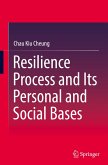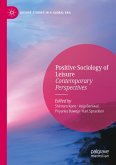This open access book seeks to change the way we think about happiness and the good life. It starts ambitiously by exploring how the biological question, "What is life?" can be integrated with the philosophical question, "What is good?" It ends with a radical idea for how scientific reasoning can include a value-based theory of the good life. Anchored in basic knowledge about human nature, the new humanistic theory of wellbeing suggests that a life is good to the extent that it allows us to perform our humanness well. The theory further defines a well-performed humanness as the fulfilment of three universal human needs: the need for stability, the need for change, and the need to and for care.
To reach this standpoint, the author critically examines major concepts in the wellbeing literature, such as values, happiness, life satisfaction, affect, hedonia, eudaimonia, and the good life. Based on these reviews, the author argues that a science of wellbeing cannot be strictly descriptive and value-free. A life should not be considered good only because it feels good or is thought of as good for the person living it. A good life must also be committed to a universal morality. Therefore, the humanistic theory of wellbeing suggests that it is good to like one's life, but even better to like it for the right reasons.
Hinweis: Dieser Artikel kann nur an eine deutsche Lieferadresse ausgeliefert werden.
To reach this standpoint, the author critically examines major concepts in the wellbeing literature, such as values, happiness, life satisfaction, affect, hedonia, eudaimonia, and the good life. Based on these reviews, the author argues that a science of wellbeing cannot be strictly descriptive and value-free. A life should not be considered good only because it feels good or is thought of as good for the person living it. A good life must also be committed to a universal morality. Therefore, the humanistic theory of wellbeing suggests that it is good to like one's life, but even better to like it for the right reasons.
Hinweis: Dieser Artikel kann nur an eine deutsche Lieferadresse ausgeliefert werden.








